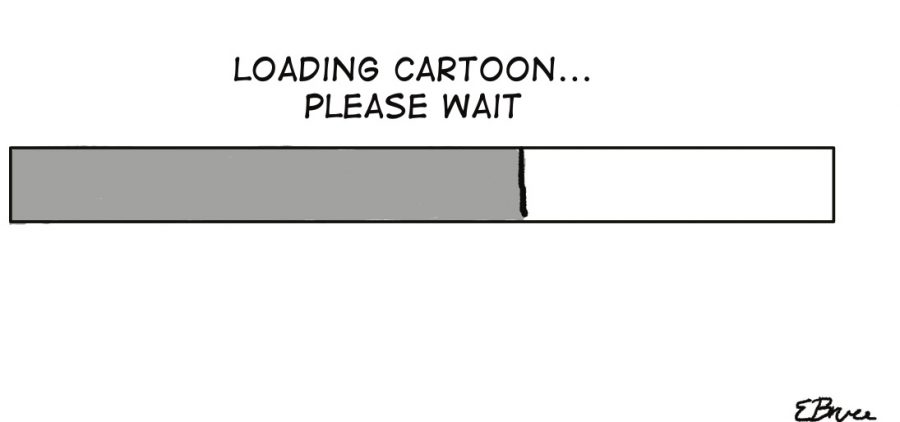Losing connection
December 14, 2017
An open internet is crucial for communication, education and entertainment nationwide, but unlimited access to websites and fast-speeds are in danger due to the pending vote to revoke of net neutrality regulations on Dec.14.
The national policy of net neutrality defines internet service providers as common carriers that cannot block or favor content on the internet.
Without net neutrality, internet service providers could create more expensive high-speed internet packages or favor companies’ sites that they have deals with, while slowing down the websites of competitors, leaving lower income families and small business at risk.
The Federal Communications Commission, which regulates all interstate and international communications in the United States, including net neutrality rules, voted to release the Open Internet Order in 2015, also known as Title II, that ensured net neutrality.
Current FCC Chairman Ajit Pai, who was appointed by President Donald J. Trump, released his plans in April to start reversing the regulations of Title II.
Pai unsuccessfully attempted to pacify net neutrality supporters’ concerns by releasing a “Myth vs. Fact” sheet, with “This is an unofficial announcement of Commission action” written in fine print at the bottom on Nov. 28.
The document addressed concerns ranging from “the end of the internet as we know it” to the blocking of website by saying that nothing was wrong before Title II was enacted in 2015, so when it is reversed everything will stay the same.
Just because favored and blocked websites were not issues before, does not mean that they will not be in the future because the internet and society has changed immensely in the last three years.
If ISPs attempt to block content, they will receive “fierce backlash from consumers” and “scrutiny from the Federal Communications Commission,” according to the document.
But backlash and scrutiny might not be enough to prevent powerful ISPs from doing just that.
The largest ISPs, AT&T, Comcast and Verizon, have spent more than $500 million lobbying the government on issues including net neutrality, according to a study by MapLight.
Once net neutrality regulations are gone, IPSs will be able to drive up rates and charge different rates for faster and slower speeds and other services.
ISPs will be able to strike a deal with a particular streaming service and the consumers who cannot afford other options may be stuck with slower speeds or blocked access to other streaming services.
Internet access may start to look like cable, with packages of varying prices, each with different access to various websites.
The few businesses and households that can afford the internet “fast-lanes” and expensive packages will have access to all the content they need, while the majority of Americans will be stuck with slower speeds, less access and fewer options.
If net neutrality regulations are reversed, the divide between the “haves” and the “have nots” will increase. Retracting net neutrality laws will hurt consumers, especially low-income households.










